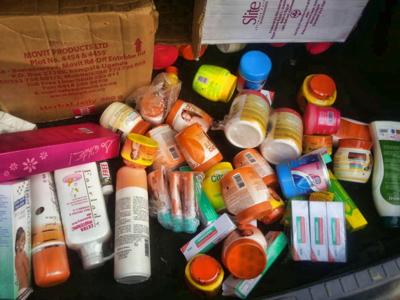NAFDAC takes campaign against bleaching creams to Jos
Residents react Mixed reactions followed the recent warning issued by the National Agency for Food and Drug and Administration and Control (NAFDAC) against the use of bleaching creams by Nigerians. The agency had on Friday held a media sensitisation in Jos, Plateau State, to stimulate journalists to create awareness against the use of bleaching creams […]

- Residents react
Mixed reactions followed the recent warning issued by the National Agency for Food and Drug and Administration and Control (NAFDAC) against the use of bleaching creams by Nigerians.
The agency had on Friday held a media sensitisation in Jos, Plateau State, to stimulate journalists to create awareness against the use of bleaching creams and other chemicals used in preparing certain foods.
Our correspondent who went round the city centre of Jos reports that the residents expressed divergent views on the position of the agency on the creams.
According to the agency, statistics by the World Health Organization (WHO) showed that about 77 per cent of Nigerian women used bleaching creams that were dangerous on their skins and other organs, adding that the number was the highest in Africa.
While some Jos residents disagreed with NAFDAC’s position, some were in agreement with the agency.
Sadiq Ilyasu, a cosmetics seller, said, “I am not in support of NAFDAC’s position in this regard. Why in the first place are the creams allowed to be imported? If the agency is sure of what it is saying, it should have banned the use of the creams in the country. Why is the government collecting taxes from the companies that produce the creams and allow them to operate?”
For Kamal Adam, “I support NAFDAC’s position because those that use the creams are not in any way better than the way they were. Changing the colour of your skin is not healthy because your skin will resist the creams. I support NAFDAC.”
Haruna Zakariya said, “NAFDAC is right on one hand and wrong on the other hand. It is right because the creams are dangerous to our skin and it is good not to use them. It is wrong because it permits some of the companies, even with registration numbers, to produce them in Nigeria.”
The agency, which emphasises on the health implications of the creams, also says buying the creams has impacts on the individual’s scarce resources which should have been channeled to other important things.
